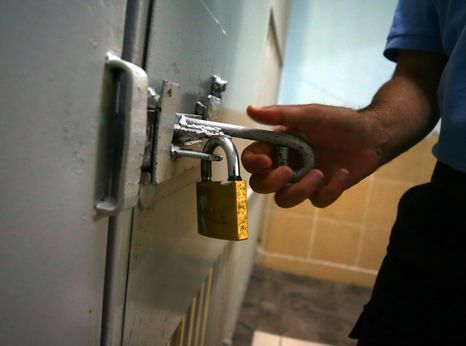Release those unfairly imprisoned and most at risk

The law passed by Parliament on 13 April is part of the reform package under the government’s Judicial Reform Strategy revealed last summer. The long-awaited judicial package was finally brought to Turkey’s Parliament on 31 March and considered by the Justice Commission on 2 and 3 April. The law, which is expected to enable the early release of up to 90,000 prisoners, allows certain categories of convicted prisoners to qualify for earlier release or to be transferred to house arrest, depending on vulnerability and length of sentence. These include those over 65 years old, women with young children and prisoners with serious illnesses. Those currently serving their sentences in an open prison will also be eligible to be transferred to house arrest for two months, with the possibility of extending this for up to two further periods of two months. Moreover, the sentences of convicted prisoners to be reduced by half but those serving a sentence under anti-terrorism laws, for crimes against the state, murder, sexual and drug related offences are excluded from this measure.
This new law excludes far too many prisoners that should qualify for early release, including journalists, human rights defenders, lawyers, opposition politicians and activists and others imprisoned simply for exercising their rights. It also excludes prisoners on pre-trial detention from the possibility of early release. In Turkey, pre-trial detention is used routinely and punitively, violating the principle of presumption of innocence and the right to liberty. The discriminatory nature of the new measures is likely to be challenged at the Constitutional Court.
In Turkey, anti-terrorism legislation is vague and widely abused in trumped up cases against journalists, opposition political activists, lawyers, human rights defenders and others expressing dissenting opinions. As we have documented in the large number of trials we have monitored, many are held in lengthy pre-trial detention and many are convicted of terrorism-related crimes simply for expressing dissenting opinion, without evidence that they ever incited or resorted to violence or assisted proscribed organizations. This includes high profile journalist and novelist Ahmet Altan, Kurdish politician Selahattin Demirtaş, and businessman and civil society figure Osman Kavala, in addition to many more academics, human rights defenders and journalists. Selahattin Demirtaş has previously reported heart-related health problems in prison, and both Ahmet Altan and Osman Kavala are over 60 years old meaning they could be at increased risk from COVID-19. These people should not be detained at all and excluding them from release would only compound the serious violations they have already suffered.
The right to health is guaranteed under several human rights treaties. Article 12 of the International Covenant on Economic, Social and Cultural Rights (ICESCR) includes the “prevention, treatment and control of epidemic, endemic, occupational and other diseases” as a part of the right to health. In the context of a spreading epidemic, this includes the obligation on states to ensure that preventive care, goods, services and information are available and accessible to all persons. Under the right to health, healthcare goods, facilities and services should be available in sufficient quantity within the state; accessible to everyone without discrimination; respectful of medical ethics and culturally appropriate; and scientifically and medically appropriate and of good quality. To be considered “accessible”, these goods and services must be accessible to all, especially the most vulnerable or marginalized sections of the population; within safe physical reach for all sections of the population; and affordable for all. The right also includes the accessibility of health-related information.
According to its commitments under international human rights law, Turkey is under a clear obligation to take necessary measures to ensure the right to health of all prisoners without discrimination. The government and Parliament must respect the principle of non-discrimination in the measures taken to lessen the grave health risk in prisons. The effect of the draft law is to exclude certain prisoners from release on the basis of their criticism of the government. Thousands of people are behind bars for simply exercising their rights to freedom of expression and peaceful assembly and they are now also faced with an unprecedented risk to their health.